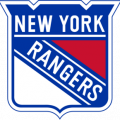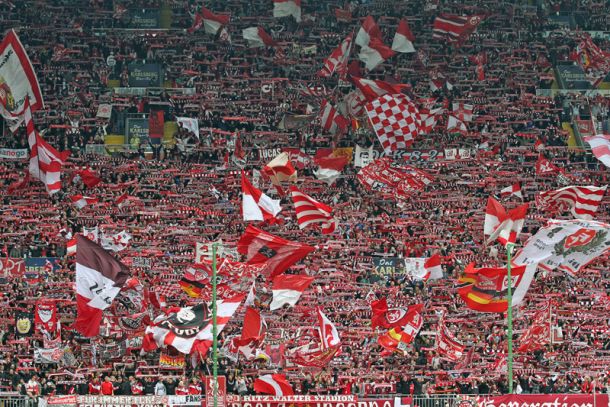Few clubs in Germany, or in fact the world, can quite boast with the history that 1.FC Kaiserslautern possesses. From the early triumphs when the Bundesliga still was young, to the relative present struggles in the second tier of the German football hierarchy, there is something enchanting about the club so ominously nicknamed Die Roten Teufel, or ‘The Red Devils’. Long known for their fanatic, and at times intimidating support, once described as “almost rabid” by a casual observer, this is a club that simply emanates passion. How long will we still have to wait to once again experience the baying for blood from the iconic Westkurve in the top division of German football?
Last season was one which promised so much, yet delivered so little in the end. There was no doubt that 1.FC Kaiserslautern were one of the pre-season favourites to win back promotion to the Bundesliga, yet they fell short after having been in the mix for most of the campaign. In the end, the fact that their last-gasp promotion bid hinged on overturning a three point deficit against Fortuna Düsseldorf, not even factoring in goal difference, tells a story in itself. Close, but not quite close enough. With striker Simon Zoller having departed for the greener pastures of newly-promoted 1.FC Köln, the reality is that Die Roten Teufel could find themselves in the far less glamorous confines of the 2.Bundesliga for some while yet. Similarly to Rome, 1.FC Kaiserslautern has fallen, after being the predominant power in the embryonic stages of German football as we know and love it today. The side that was battered 5-1 by fierce rivals Bayern Munich rather unceremoniously in the 2014 DFB Pokal semi-final is a far cry from the feared unit that once beat the same opponents by 7-4 after having trailed by 1-4 at one stage.
The legendary Fritz Walter Stadion has seen plenty of success since its birth in 1920, with the club having won four German Football Championships, two DFB-Pokals and one solitary DFL Supercup. In the early years before World War II, the club was only moderately successful, however, while still finding its true identity through merging with other smaller and nearby clubs such as FC Palatia, FC Bavaria and SV Phönix. In the newly-formed Westkreis-Liga, 1.FC Kaiserslautern won the first league title in 1908, and continued to perform admirably with a number of runner-up finishes. Despite this, it continued to fly underneath the radar, spending most of the 1930’s bouncing up and down between the Bezerkliga Rhein-Saar and the upper-level Gauliga Südwest, one of the sixteen new top-divisions in German football as re-organized under the Third Reich. During the latter stages of the decade and the early 1940’s, Die Roten Teufel started to make their mark on the German footballing scene, with numerous appearances in the latter rounds of the national finals, including a memorable 3-9 thrashing against FC Schalke 04, who at that stage were the undisputed superpowers of German football. However, as the war came to an end, league play started collapsing under the old system, and teams in the French-occupied South-western Germany were organized into northern and southern divisions to determine who would be allowed to join the new Oberliga Südwest which was being organized.
This very much was the catalyst for the start of the domination that 1.FC Kaiserslautern were to experience over their competition over the next decade-and-a-half, with Die Roten Teufel proceeding to win the Oberliga Südwest eleven times over the next twelve seasons. They went all the way to capture the 1951 and 1953 national titles, spearheaded by the duo of Fritz Walter and his brother Ottmar, who at that stage were renowned for scoring more goals as a strike partnership than many other sides could muster as a whole. The club also became irreversibly linked to the 1954 FIFA World Cup, where 1.FC Kaiserslautern contributed five players to the legendary Germany squad that triumphed in the Miracle Of Bern. After this period of dominance, performances started to wane as the 1960’s came around, with only a German Cup final appearance in 1961 really standing out. However, another Oberliga Südwest triumph allowed the club to take part in the first ever season of the Bundesliga.
More trophies would be a long time coming, though, as failed German Cup appearances in 1972, 1976 and 1981 kept Die Roten Teufel and their fans hungry for success, before their agony was finally ended in 1990. In the following season, 1.FC Kaiserslautern also managed to win their first ever Bundesliga title. The nineties were to be a decade of further ups-and-downs, as a DFB-Pokal triumph in 1996 was soured by relegation mere weeks afterwards. However, the club would storm back into prominence soon after under legendary manager Otto Rehhagel by winning the 2.Bundesliga title in 1996/1997, before extraordinarily storming to the Bundesliga title the season immediately after earning promotion to the top flight.
The next decade would be increasingly frustrating, with financial difficulties and mismanagement leading to the steady decline of 1.FC Kaiserslautern. In 2002, the Fritz Walter Stadion even had to be sold to save the club from financial ruin, which just served as an indicator of how far the club had fell from its previous glory days. Intermittent spells between the second-and first divisions were to follow, with the highlight of recent years being another 2.Bundesliga triumph for Die Roten Teufel in the 2009/2010 season, only to be followed by relegation after only two years back in the top flight, where many feel they belong. This brings us to the present day, where the club is waiting in eager anticipation for another attempt to get back into the premier division in German football.
1.FC Kaiserslautern can truly be described as one of the sleeping giants of world football, with many wondering whether the club will, indeed, ever awaken from its slumber. The landscape of German football has changed significantly, with clubs such as Bayern Munich having gone from strength to strength, and the traditional powerhouse, Borussia Mönchengladbach, having experienced a renaissance of late.
However, the one thing that will never change is the history books, and the Westkurve will continue in their proud voice, striking fear into any team daring to stray into the den of the Red Devils.










































